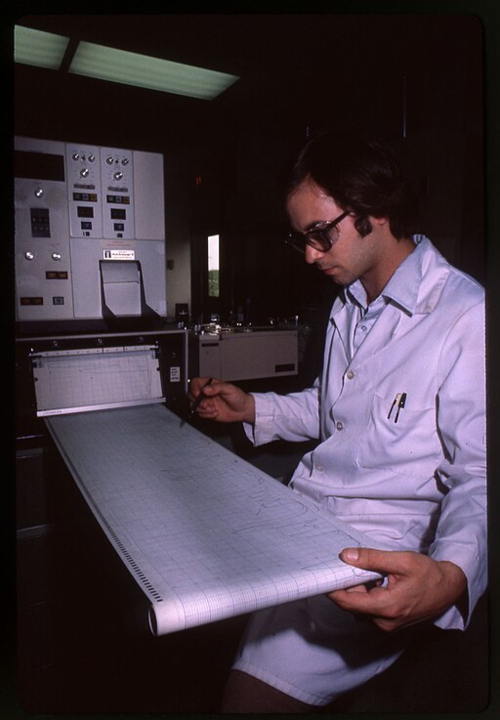A Class of Experts. Computer Work and its Hierarchies

In the Federal Republic of Germany, ‘computer work’ has been the subject of various popular guides since the end of the 1970s. A book on the new ‘computer professions’ by Kurt Weichler published in 1987 is an example of this, in which he uses biographical portraits and interviews to paint a picture of a profession characterised by (ingenious) unconventional minds with fractured professional biographies and ambitious entrepreneurs. For many of the digital experts, computer work seemed to be a calling, which is why “every good programmer [...] is divorced at least three times” or only spends Sundays with his wife and three children “under pressure from his wife”.
This stereotype of a (male) computer expert differed fundamentally from the ‘classic’ worker of the high modern age, both in terms of habit and value to the company. He was expected less to have formal qualifications or professional experience and more to act as “an entrepreneur in his own right” (Bröckling 2007). The research project analyses how these new experts in West Germany challenged established corporate hierarchies, processes and workflows and thus constituted themselves as a new class between the 1970s and 1990s. As the avantgarde of “technologically stimulated singularisation” in the world of work (Reckwitz 2017), they thus appear as heralds and agents of neoliberalisation, the characteristics of which were a polarisation between highly and low-skilled workers, a flexibilisation of work and the establishment of new systems of inequality. In addition to the highly paid computer experts, a second class of IT workers emerged in the computer industry - for example in computer centres - whose everyday life was characterised by neo-tayloristic work processes in three-shift operation (Boes 2003). The aim of the project is to analyse the digital transformation of the working world with a particular focus on (intersectionally conceived) class conflicts since the ‘long’ 1970s.

